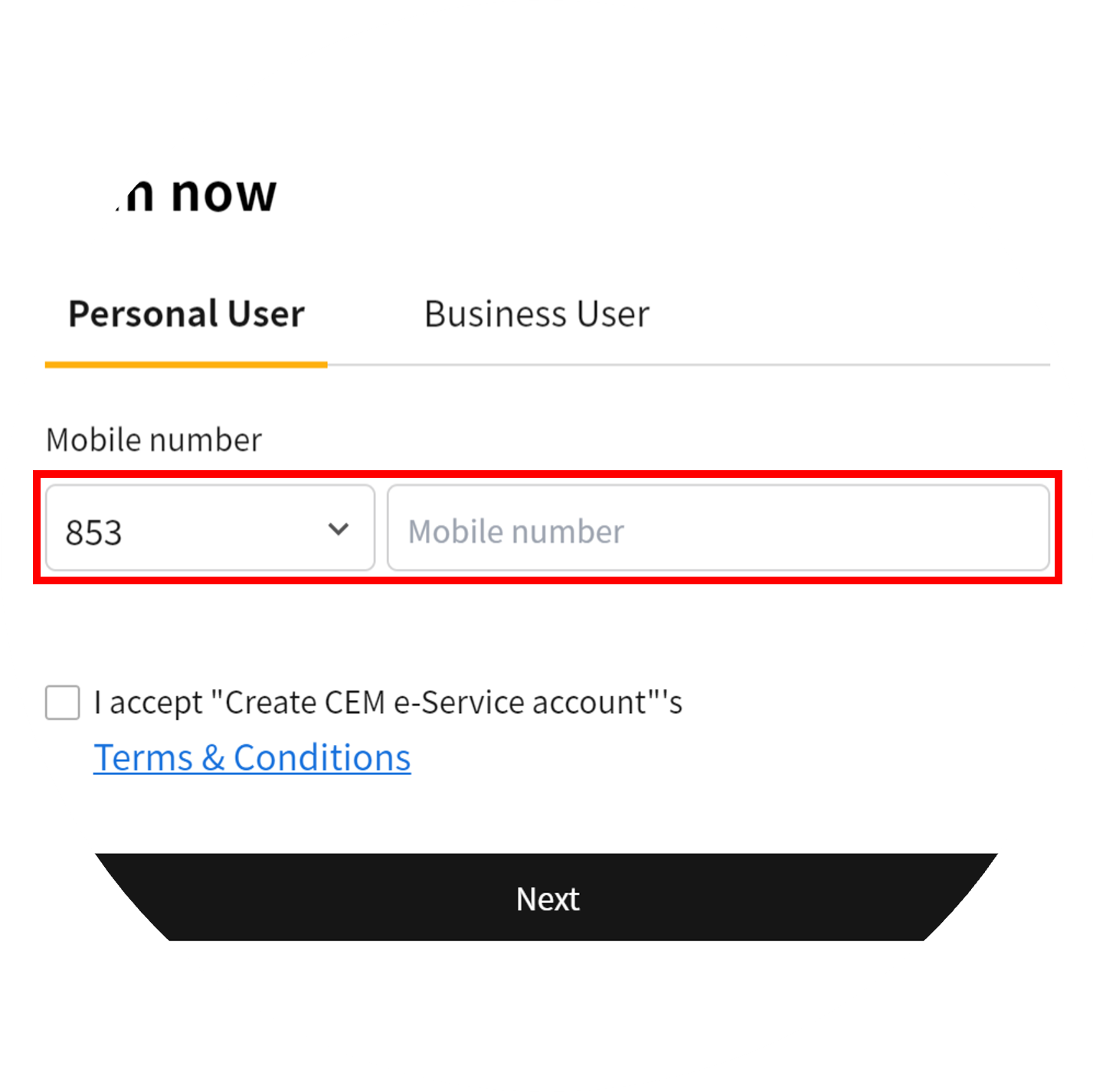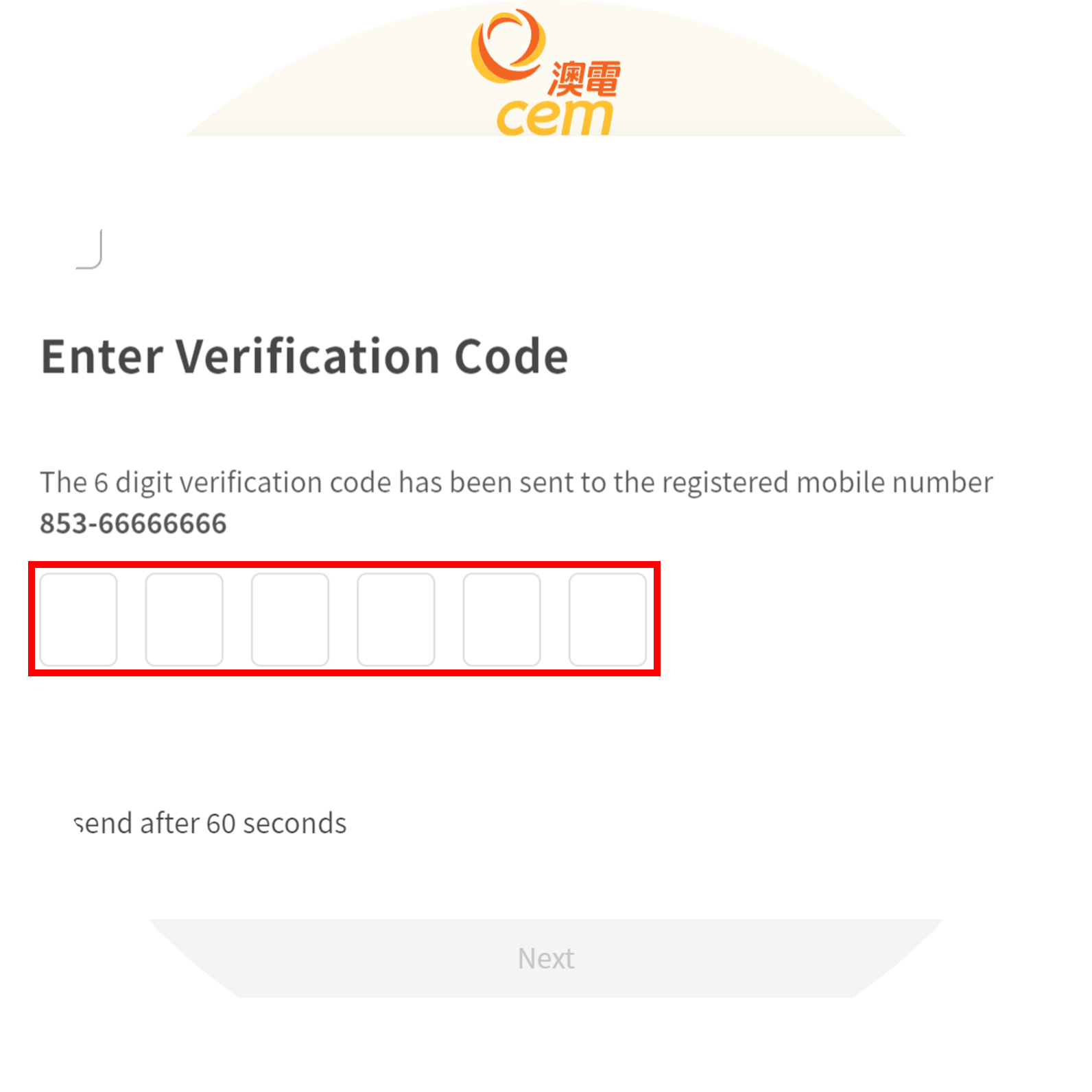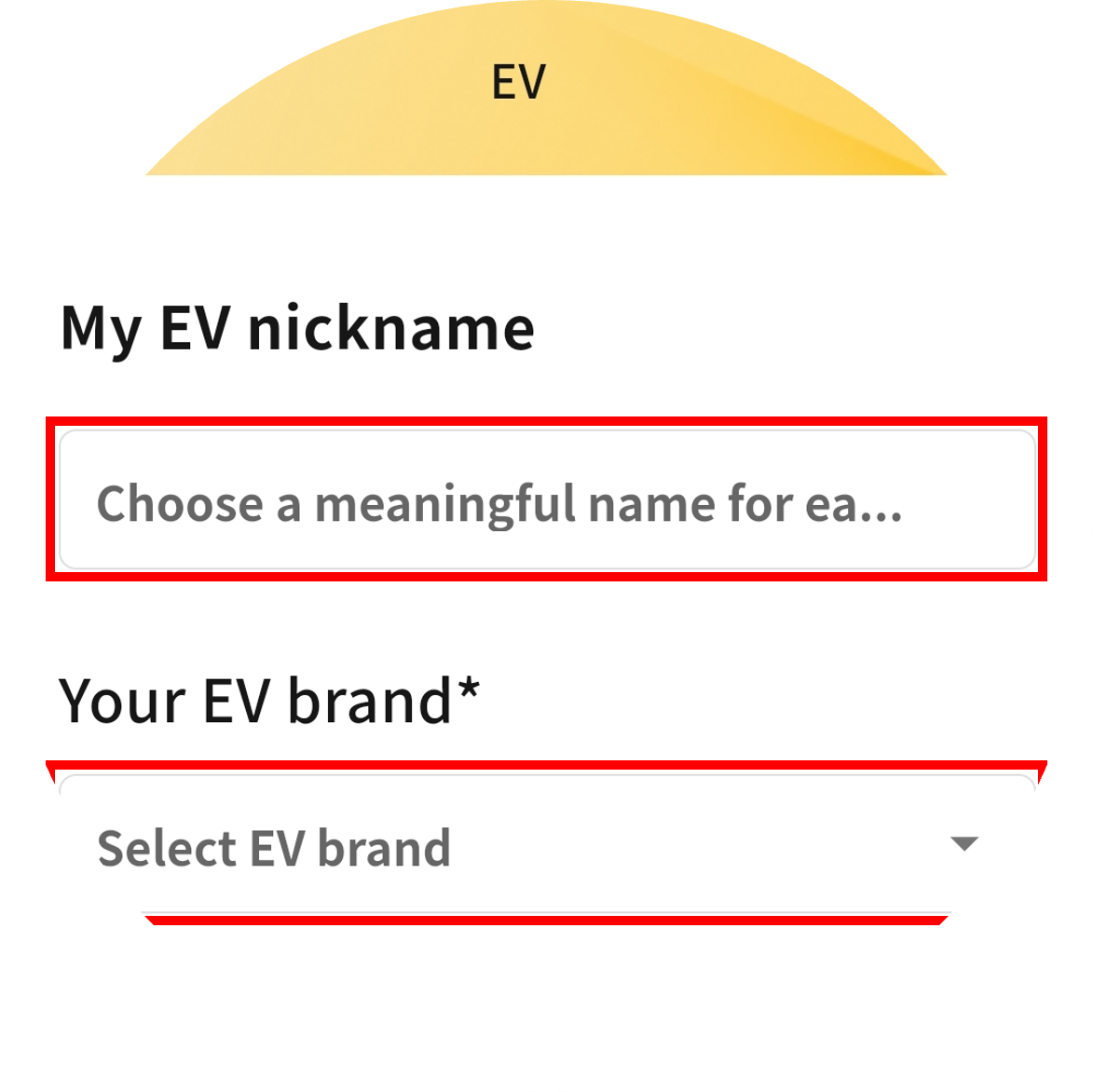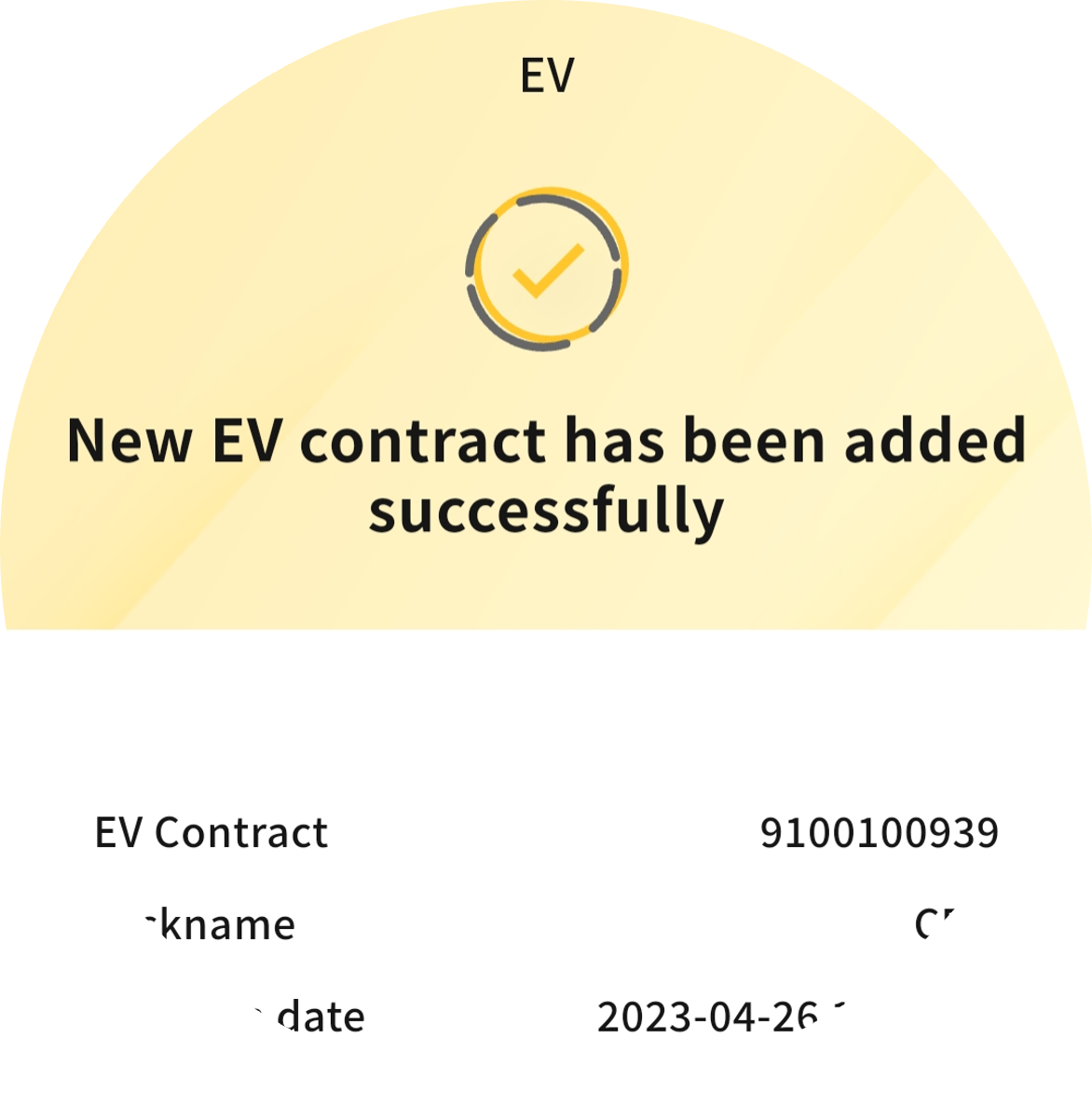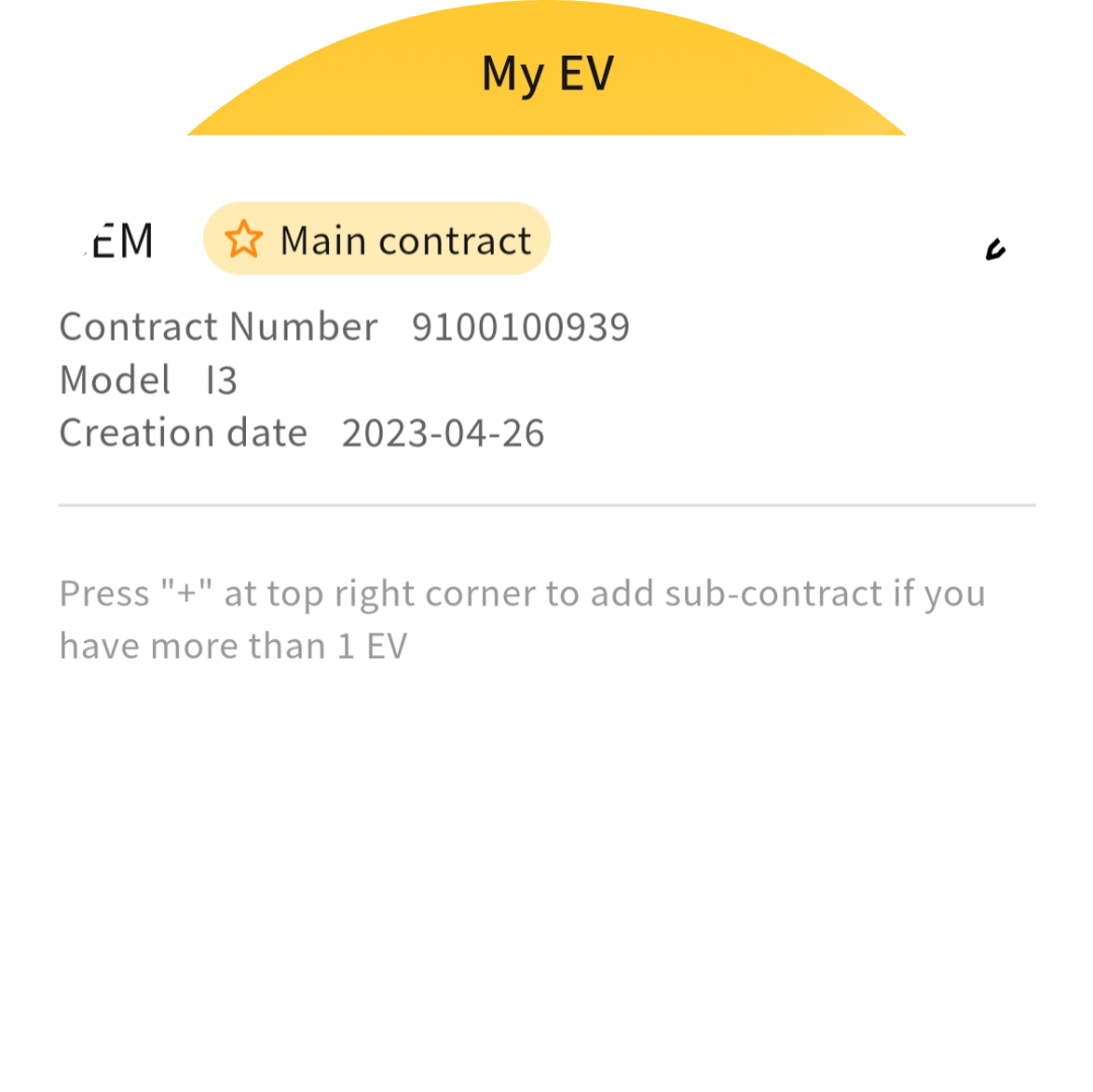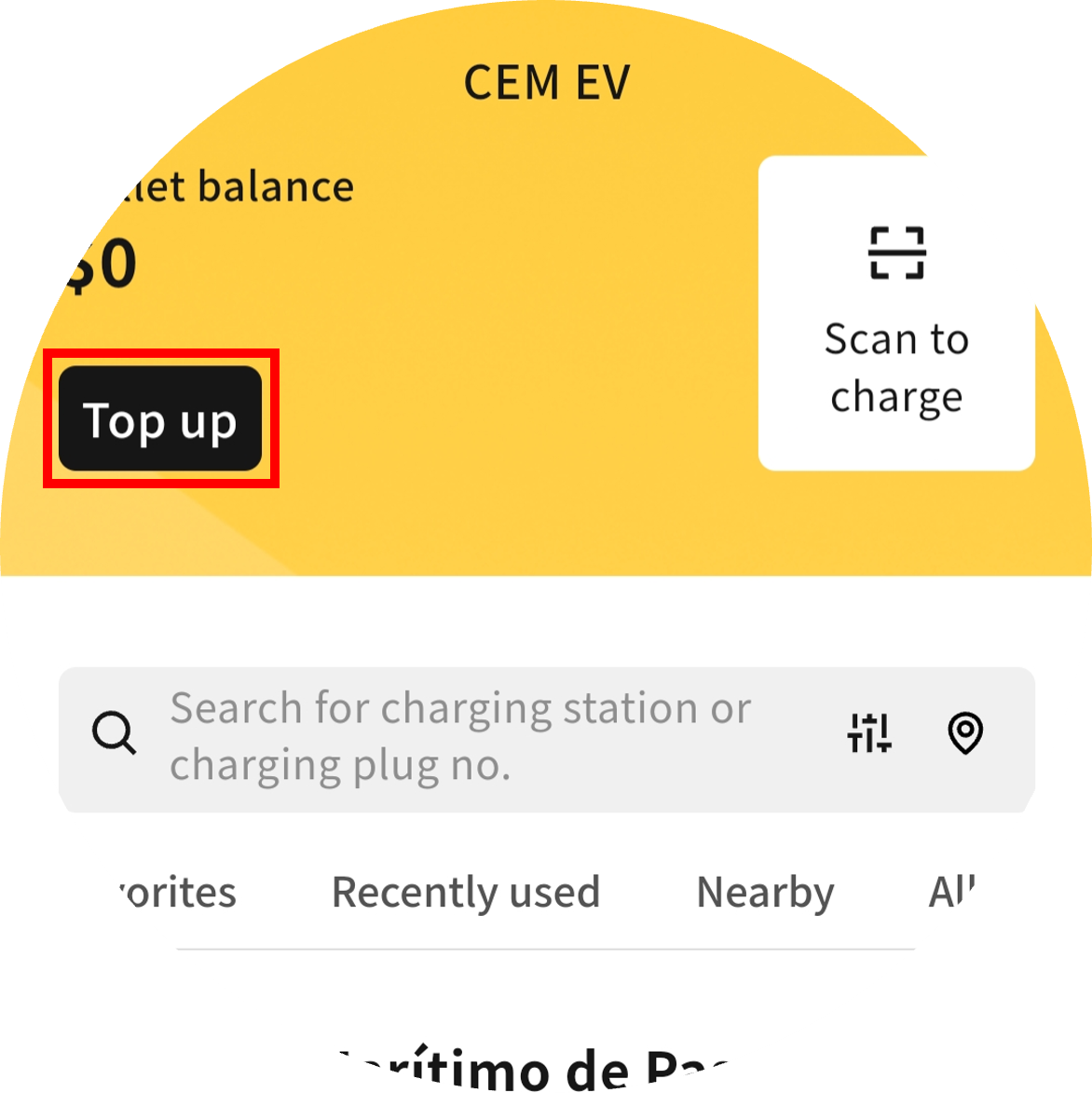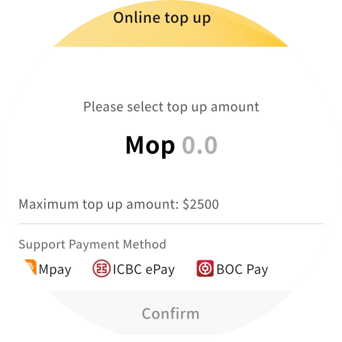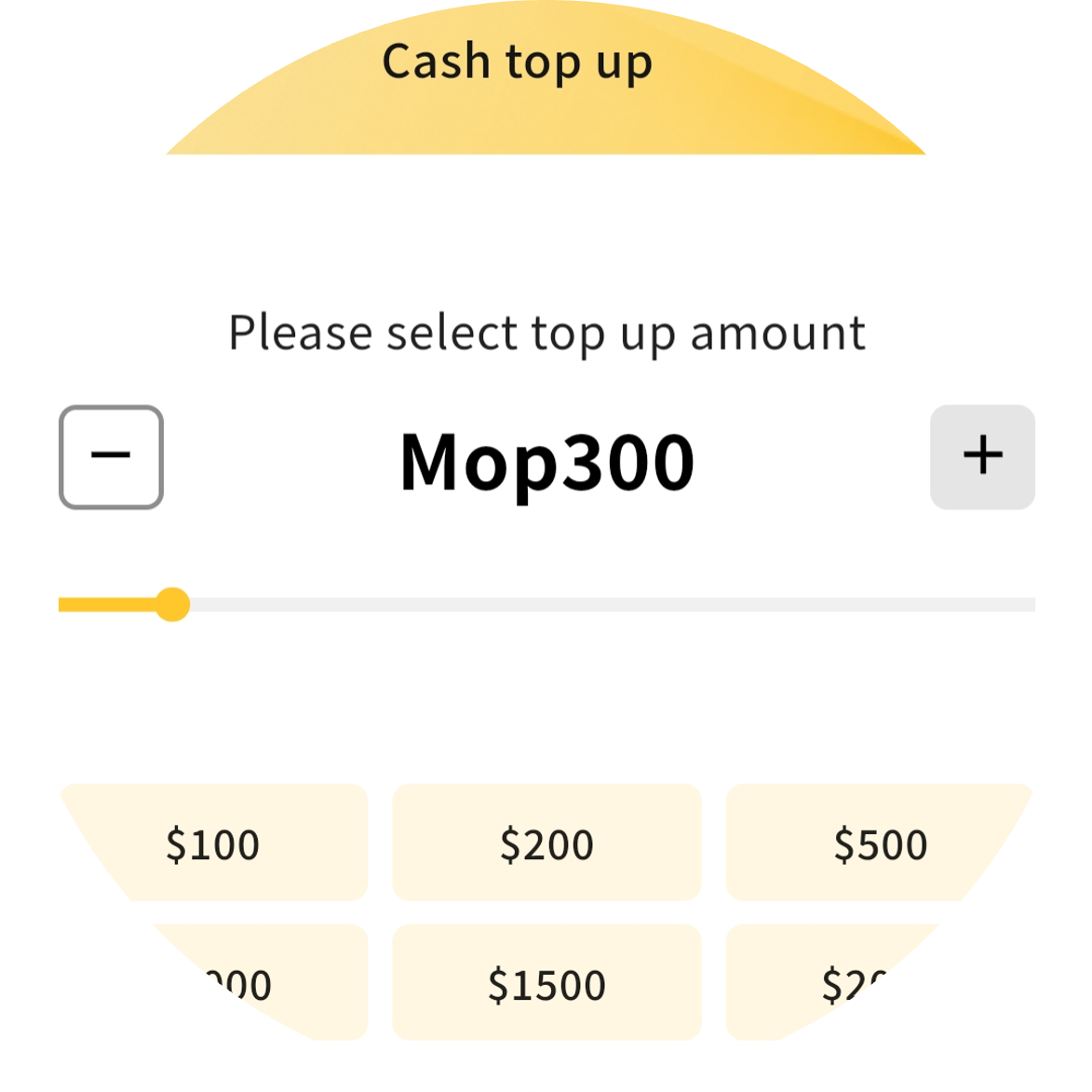
Charge in Public


Charge in Private Locations

Charge in Public
Ways to Access CEM eService






Create Your Account
Public Charging Tariff is applicable to the charging facilities set up by CEM in public car parks, public parking areas or parking areas not located on public roads. Charges are based on the rated output power of the charging facilities and time-of-use.
- Slow Charge: Charges are based on full-load hours and low-load hours
- Medium/Quick Charge: Whole day flat rate
Public Charging Tariff is charged per each charging transaction
and is calculated based on the following items:
Demand (in unit of kVA)
Calculated based on the rated maximum output power of the charging facilities selected by user. Such charge is waived.
Energy Charged
Total amount of electricity charged per each charging transaction.
Consumption (in unit of kWh)
Calculated based on energy charged.
Tariff Clause Adjustment
Adjustment in tariff to reflect fluctuation in energy production cost that is fixed quarterly.
Consumption **
|
Rated Output Power |
Tariff Period |
Time |
Demand |
Consumption |
|
Slow Charge |
Full-load hours |
09:00 - 20:00 |
0.00 |
1.940 |
|
Low-load hours |
20:00 - 09:00 |
0.00 |
1.280 |
|
|
Medium Charge |
24 hours a day |
00:00 - 24:00 |
0.00 |
2.680 |
|
Quick Charge |
24 hours a day |
00:00 - 24:00 |
0.00 |
3.100 |
** Administrative Regulation No. 25/2022 of 15 June 2022.
** Chief Executive’s Dispatch No. 105/2022, as revised by the Chief Executive’s Dispatch No. 1/2026 and Chief Executive’s Dispatch No. 66/2024.
Calculation method:
Charging fee = Demand + (Energy charged x (Consumption + Tariff Clause Adjustment))
Example
Generally, the battery capacity of electric vehicles (EVs) on the market is about 80 kWh. If it is charged from a remaining power level of 20% to 80%, 48 kWh is required to be charged. The following are the costs at different charging speeds and time periods. No matter which one is selected, it is cheaper than fuel.
|
Charging Speed |
Charging Period |
Time Required |
Charging fee (MOP) |
|
Slow Charge |
Full-load hours |
Approx. 7 hours |
48 kWh x ($1.940+$0.350) = $109.92 |
|
Low-load hours |
48 kWh x ($1.280+$0.350) = $78.24 |
||
|
Medium Charge |
24 hours a day |
Approx. 2.5 hours |
48 kWh x ($2.680 + $0.350) = $145.44 |
|
Quick Charge |
24 hours a day |
Approx 1.5 hours |
48 kWh x ($3.100 + $0.350) = $165.60 |
Remarks
- TCA in Q1 of 2026 is MOP 0.350.
- Slow charge is calculated at complete full-load hours and complete low-load hours.
- Considering the differences in model, battery status, charging rate and charging mode of EVs, the calculation results are for reference only. The actual cost is subject to the actual charging conditions.
Charge in Private Locations
Private Charging Facilities
CEM further streamlines the relevant procedures for installing charging facilities in private parking spaces, making the application easier.
1
Applicants are requires to classify the registration of relevant car parks/parking spaces and comply with the following regulations before applying.
- -- If the parking space is privately owned, according to Law No. 14/2017, "The Legal Regime for the Management of the Common Parts of Condominiums", the notice of the relevant works can be posted in the lobby of the building entrance and in visible places close to the project area of 15 days, at the same time, written notice should be provided to the management committee if the building has one;
- -- If the parking space belongs to an independent car park with title registration (mainly when the title share was registered before 2000), the consent of two-thirds of the parking space owners shall be obtained in accordance with the requirements of the Civil Code; If the power supply of the original building is unchanged, the consent of half of the parking space owners shall be obtained;
- -- If the parking space ownership registration is a common part of the condominium, under the requirements of number 1 of Article 29 of Lam No. 14/2017, "The Legal Regime of the Management of the Common Parts of Condominiums", it is only deemed approved by obtaining at least half of the total votes of the condominium owners at the general meeting, and the representing at lease 15% of the total value of the confominium.
2
If the power supply application for private EV charging facilities involves installation works in the communal area of the building, the applicants should pay attention to the following:
- -- The installation of the charging facilities must not affect other car park users
- -- The additional main collective switchboard and its appurtenances (except for the independent meter box) are regarded as part of the building’s communal electrical installation
- -- Applicants are required to communicate with the relevant property management company / management committee or other owners. For details, please refer to the DSPA “Instructions for the Installation of Electric Vehicle Charging Facilities in Private Car Parks” (Portuguese only)
3
Get a Supply Feasibility from us
- Required documents:
- -- Requested subscribed demand in kW (size of your EV charger)
- -- Copy of Immoveable Property Registration Report issued by Macau Land Real Estate Registry Office (CRPM) (vaild within 3 months)
- -- Any information can clearly show the parking lot location (Such as building and parking space floor plan, drawing or picture, etc.)
- Time elapsed:
- -- Within 10 working days
-
Remark: Since the original electrical design of the building does not reserve any power for parking spaces, the charging devices for electric vehicles are mainly medium/slow speed, it is recommended the Subscribed Demand of private charging facilities is 6.9kVA
4
After receiving the Power Supply Feasibility reply, applicants should:
- -- Hiring Registered Technician and Eelectrical Tenchician, preparing the power design plan for the installation of charging facilities and submit to the Land and Urban Construction Bureau (DSSCU) for approval.
5
After obtaining the approval design plan of electrical system (with stamp drawing) by the Land and Urban Construction Bureau (DSSCU)
- Clearly mark the name or number of the related parking space as shown on PRR, then submit to CEM for customer electrical installation and grid connection planning.
6
After receiving our reply, apply a private EV charger contract at our counter or through online
Required documents:
- -- ID copy of the car park owner
- -- For tenant, also with ID copy of tenant and valid tenancy lease
- -- For company/association, also with copy of business/association registration issued within 3 months
- -- Copy of Immoveable Property Registration Report issued by Macau Land and Real Estate Registry Office (CRPM) (valid within 3 months)
- -- "Purpose of Electrical Installation / Electrical Technician Declaration" (1) and his/her ID card copy
- -- The approval design plan of electrical system (with stamp drawing) by the Land and Urban Construction Bureau (DSSCU)
- -- Valid Electrical Installation License issued by the Land and Urban Construction Bureau (DSSCU) under the name of applicant and with respective subscribed demand if the subscribed demand is over 13.8kVA
Remarks:
[1] Declaration has to be signed by the applicant or the legal representative(s) of the company/association with company/association chop. “Electrical Technician Declaration” is only applicable to Electricity Supply Application and Change of Subscribed Demand that require valid Electrical Installation License.
7
Install meter within 4 working days after both customer and CEM electrical works have been completed and inspected
General Charging Tariff, namely private charging, is applicable to the charging facilities not covered by the Public Charging Tariff. General Charging Tariff is charged according to "time-of-use".
General Charging Tariff is charged according to the total charging consumption in a month and is calculated based on the following items:
Demand (in unit of kVA)
Charged based on maximum electric load available as stated in the supply contract and controlled by the meter size and protection device (subscribed demand).
Energy Charged
Total amount of electricity charged in a billing month.
Consumption (in unit of kWh)
Charged based on energy charge.
Tariff Clause Adjustment (TCA)
Adjustment in tariff to reflect fluctuation in energy production cost that is fixed quarterly.
Government Tax
Monthly tax payable for the usage of electrical installation.
Prices [*]
Demand
Subscribed Demand
Subscribed Demand Charge
Up to 3.4 kVA
8.224 (MOP)
Above 3.4 kVA to 6.9 kVA
18.796 (MOP)
Above 6.9 kVA
3.372 (MOP/kVA)
Consumption
Tariff Period
Time
Consumption
Full-load hours (11 hours)
09:00 - 20:00
1.552 (MOP/kWh)
Low-load hours (13 hours)
20:00 - 09:00
0.817 (MOP/kWh)
Calculation method:
Charging fee = Demand + (Energy Charged x (Consumption + Tariff Clause Adjustment))+ Government tax
Example:
-
Unit
Unit Price (MOP)
Amount (MOP)
Demand
6.9 kVA
18.80
Consumption (full-load hours)
40 kWh
1.552
62.08
Consumption (low-load hours)
160 kWh
0.817
130.72
Tariff Clause Adjustment
200 kWh
0.400
80.00
Government Tax (0.75 x √6.9)
2.00
Total
293.60
Remarks:
- Administrative Regulation No. 25/2022 of 15 June 2022.
- Chief Executive’s Dispatch No. 105/2022, as revised by the Chief Executive’s Dispatch No. 66/2024 of 15 April 2024.




